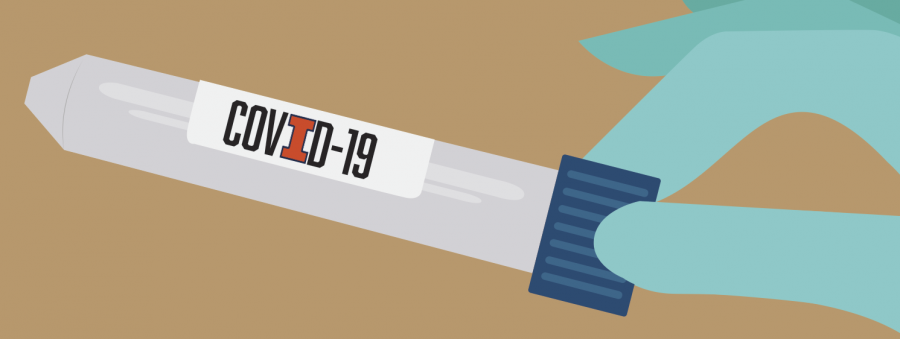Opinion | CU community deserves UI COVID-19 testing
Oct 8, 2020
Around this time last year, my friends and I were in a frenzy of making plans to visit each other at our schools. I distinctly remember my twin sister’s first visit down here and mine up to Chicago, where she and some of our other high school friends attend college.
Obviously, this year looks completely different. Going to the city in the middle of a pandemic doesn’t seem the most advisable, and having them come from the city could just bring the risk here. The prospect of visiting each other is shaky, so it’s mostly a non-option right now.
But that doesn’t have to be the case. If all schools — and all communities, for that matter — were testing for COVID-19 at the capacity the University is conducting tests at, the definition of safe socialization could be completely reformed. And this raises the question of why this isn’t more of a priority.
The University began developing its own saliva-based COVID-19 test in mid-May. Only in mid-September was there any mention of expanding the testing to the Champaign-Urbana community. Chancellor Robert Jones has been in contact with Urbana and Champaign officials about beginning testing in the community separate from the University and anticipates opening up testing about three to four weeks from now.
While I commend this step in the right direction, I can’t help but wonder why the community in which most of us are guests was an afterthought when it came down to who to test first.
Get The Daily Illini in your inbox!
I was in my biology lab when the Massmail about the two-week lockdown was first released, and our teaching assistant said something that really stuck with me: in the event that the campus does shut down, students can just return home and be in their relatively safer communities. But we leave behind people who are here year-round, left to deal with the aftermath of whatever decisions college students are making.
This raises the unique question of whose responsibility it really is to make sure we’re being safe, too. Yes, we have a gold-standard testing and tracing program. But why was it up to the University to plan, fund and execute that? What does that say about universities that are smaller or less financially stable?
In an interview with UI System President Tim Killeen, he said he is actively working with Governor J.B. Pritzker to make purchases to expand testing capacity and that the priority is “not to avoid outbreaks, but to deal with them.” He understands that in a school of 52,000 students, faculty and staff, preventing the spread of the virus is almost unachievable. But it’s so important to work diligently to contain it.
Without a reliable and accessible vaccine or cure, our best bet is testing and contact tracing. Following the example of countries such as Iceland could significantly reduce or even eliminate the virus’ impact on our everyday lives.
Currently, the University is conducting around 11,000 tests a day. The process is quick and painless, both as a student who has to get tested twice a week and as an employee at the sites. Students check in using their NetID to generate a label to go on the test tube, are escorted to a square on the ground spaced six feet apart from other squares and place their sample in a tub.
For the sake of rapidly processing the tests and uploading multiple results per day to a common database, we are excluding the families of staff, faculty and students. These are people’s children, spouses and relatives who live with them and can be just as exposed to COVID-19.
The approximate timeline for when the C-U community can expect testing to expand is around December, with the initial phases starting around three to four weeks from now. While this effort is commendable, at this point, a lot of the damage has already been done to the community.
Ultimately, the surrounding community is what brings vibrancy to C-U outside of the academic year. Whether or not we care to admit it, community members are a part of our quarantine bubble — the least we can do is prioritize their wellbeing.
Tara is a sophomore in LAS.






